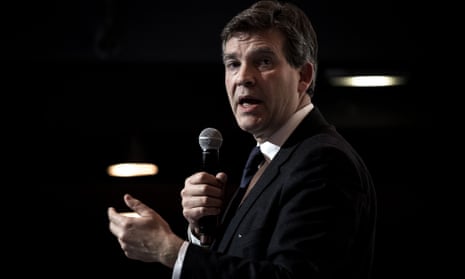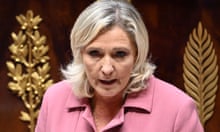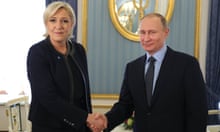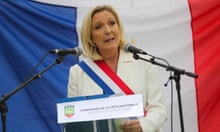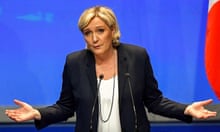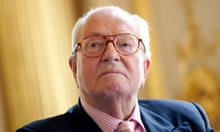France cannot keep acting as “gatekeeper to the British crown” at Calais and must stop managing refugees and migrants for the UK, Arnaud Montebourg, a key contender to become the Socialist party’s presidential candidate, has warned.
The flamboyant leftist told the Guardian he saw himself as a French version of Bernie Sanders, the US senator who made a bid to become Democratic presidential candidate on the issue of fighting inequality.
Montebourg, who quit as economy minister two years ago after leading a rebellion against François Hollande’s pro-business stance, is now running in the Socialists’ open primary race to choose a candidate for the French presidential election next spring.
Montebourg told the Guardian that when negotiations begin over the UK’s departure from the European Union, Britain should also be prepared to face discussions over the Le Touquet accords – the deal with France that keeps border checks, and thousands of refugees and migrants, on the French side of the Channel.
Under the bilateral treaty signed in 2003, which is separate from any EU accords, British officials can check passports in France and vice-versa, meaning the British border is effectively in France and migrants and refugees trying to reach Britain have found themselves stuck in a no-man’s land in Calais and along France’s northern coast.
Montebourg’s stance shows the French left is joining politicians on the right in pushing for a renegotiation of the border deal. He said the Le Touquet accords were “part of the points that will have to be discussed” in the coming months.
He said: “Each country has to take its own responsibility, especially if they are no longer in the EU.” He added that it was natural that “while inside the European Union there is a reciprocal solidarity so we can do favours for each other”, but suggested that this would no longer be the case after Brexit and the UK should not assume the Le Touquet accords would remain unchanged.
He described France as “a long-term friend, historical ally and good neighbour” of the UK, but said the “damage” from handling migrants and refugees for Britain had been considerable.
On the Brexit discussions themselves, Montebourg said: “I want to say very clearly that I’m for a moderate position on the negotiations. But once you leave Europe, there have to be consequences. You can’t have your cake and eat it.”
He added: “Our friends in Britain have to choose,” and he said Britain’s exit would have to be firmly fixed, with “no fluidity to their departure”.
Montebourg, 54, is one of the most outspoken and controversial figures on France’s deeply fractured left. A staunch leftwing former lawyer with a theatrical style as a thunderous orator, he is an anti-austerity, economic protectionist who, as a government minister, posed in a striped Breton sailor top to insist more must be done to protect the notion of “Made in France”.
At a breakfast meeting in Paris with the Guardian and a handful of international reporters, he frequently banged his fist on the table over the importance of fighting what he called the ravages of globalisation.
Born and raised in Burgundy, where he later served as an MP, Montebourg is the son of a tax inspector and a Spanish teacher. One of his grandfathers was Algerian and his French grandparents were local charcutier butchers.
As a young lawyer, he became famous for his vehement anti-corruption campaigning, notably in 2001 when he tried but failed to impeach the president Jacques Chirac over an earlier party funding scandal as Paris mayor.
As economy minister, Montebourg engaged in vicious spats with international business, telling the steel magnate Lakshmi Mittal in November 2012 that “we no longer want Mittal in France” and threatening to temporarily nationalise two blast furnace sites that were under threat. He was overruled by Hollande.
Ousted from government in 2014 for his vocal criticism of Hollande, he went to business school and took a leading position in the furniture group Habitat.
He is running for the Socialist nomination promising to end the EU’s austerity drive, raise state spending, lower taxes, fight globalisation and overhaul the French political system to found a new French Republic. He aims to appeal to leftwing voters who feel betrayed by Hollande.
It is uncertain how he will fare. He faces the staunchly pro-business former prime minister Manuel Valls, as well as another young leftist, Benoît Hamon, and a former education minister, Vincent Peillon, who rushed to enter the race when the beleaguered and unpopular Hollande said he would not run for a second term.
Current polls show that the governing Socialist party is so fractured and unpopular that whoever becomes its candidate has no chance of reaching the second round of the presidential race next May. Currently, the right’s François Fillon and the far-right’s Marine Le Pen are in the lead.
Emmanuel Macron, a maverick, independent centrist former economy minister and the hard-left Jean-Luc Mélenchon are seriously eating into the left’s vote and threaten to limit the Socialist party’s chances.
Montebourg said he wanted to reunite a French left that had been “chopped into pieces” by years of spats over economic policy. For him, the Socialists needed to drop any Blairite, pro-business shift to the centre and return firmly to the hard left.
“The left moving right didn’t work,” he said. “So the left must be left if it is to stand for anything and fulfil its historic mission.”
Describing himself as a pro-European who wanted to totally overhaul the EU, he said 2017’s French presidential election was the last chance to reform Europe and stem the rise of populism.
“This election is the last gas station before the desert. Otherwise serious events will undo Europe. If France votes for Marine Le Pen, there will be no Europe left. Things are very serious, so if reformers who are passionate about the idea of Europe don’t succeed now, it will all be over.”
